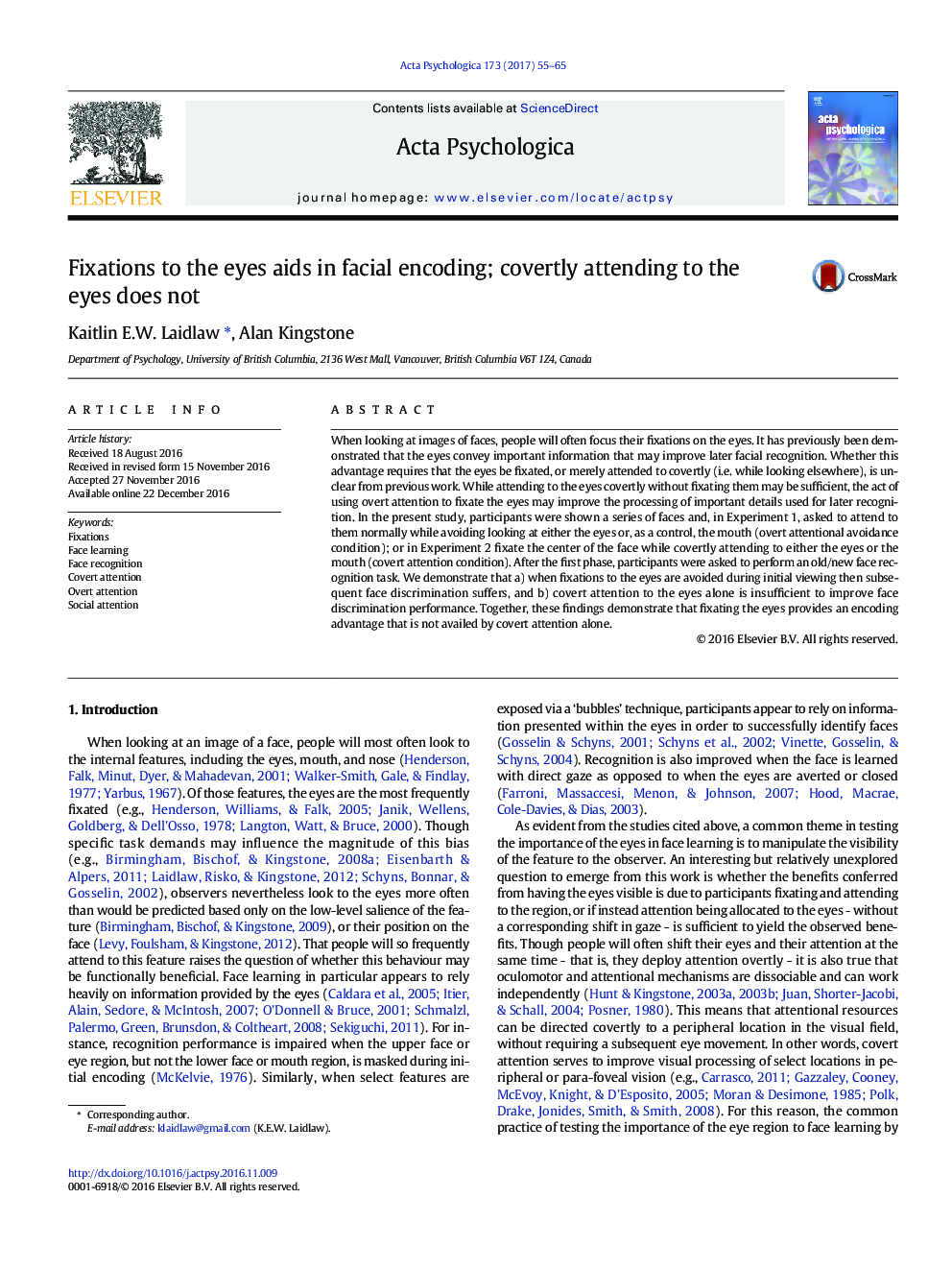| Article ID | Journal | Published Year | Pages | File Type |
|---|---|---|---|---|
| 5040319 | Acta Psychologica | 2017 | 11 Pages |
â¢Two tasks test if eye information is successfully encoded without fixating.â¢When prevented from fixating the eyes, face recognition is impaired.â¢Not looking at the mouth also impairs encoding, but less so than avoiding the eyes.â¢Covertly attending to the eyes is insufficient to improve later recognition.â¢It appears that attention must be directed overtly to the eyes to improve facial encoding.
When looking at images of faces, people will often focus their fixations on the eyes. It has previously been demonstrated that the eyes convey important information that may improve later facial recognition. Whether this advantage requires that the eyes be fixated, or merely attended to covertly (i.e. while looking elsewhere), is unclear from previous work. While attending to the eyes covertly without fixating them may be sufficient, the act of using overt attention to fixate the eyes may improve the processing of important details used for later recognition. In the present study, participants were shown a series of faces and, in Experiment 1, asked to attend to them normally while avoiding looking at either the eyes or, as a control, the mouth (overt attentional avoidance condition); or in Experiment 2 fixate the center of the face while covertly attending to either the eyes or the mouth (covert attention condition). After the first phase, participants were asked to perform an old/new face recognition task. We demonstrate that a) when fixations to the eyes are avoided during initial viewing then subsequent face discrimination suffers, and b) covert attention to the eyes alone is insufficient to improve face discrimination performance. Together, these findings demonstrate that fixating the eyes provides an encoding advantage that is not availed by covert attention alone.
